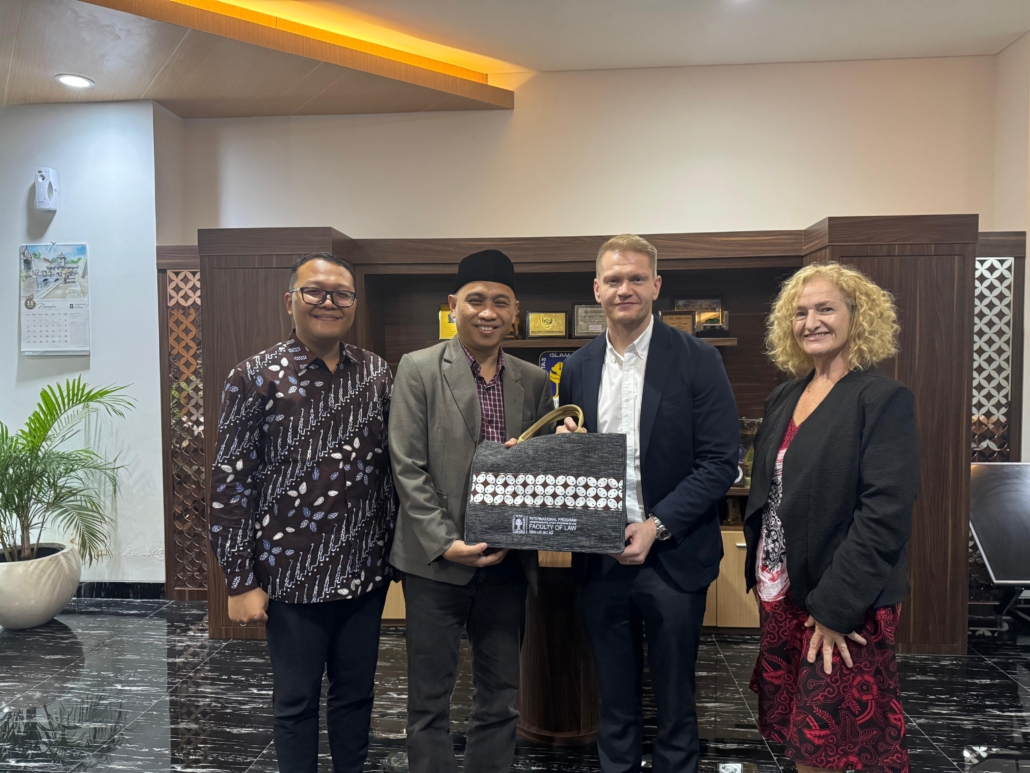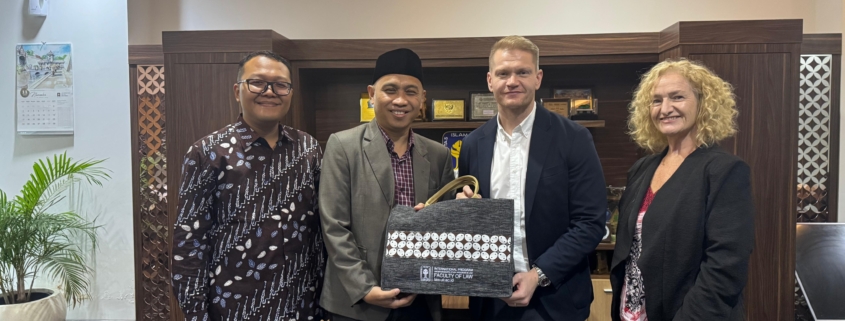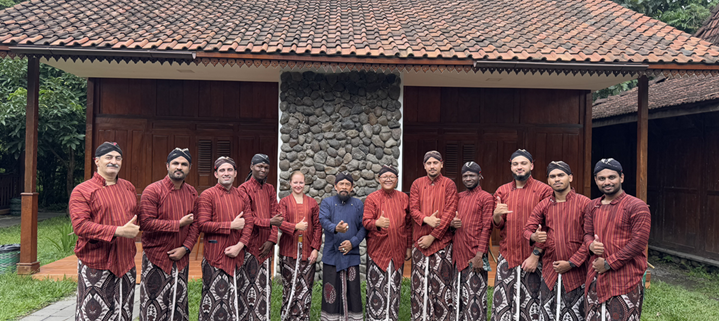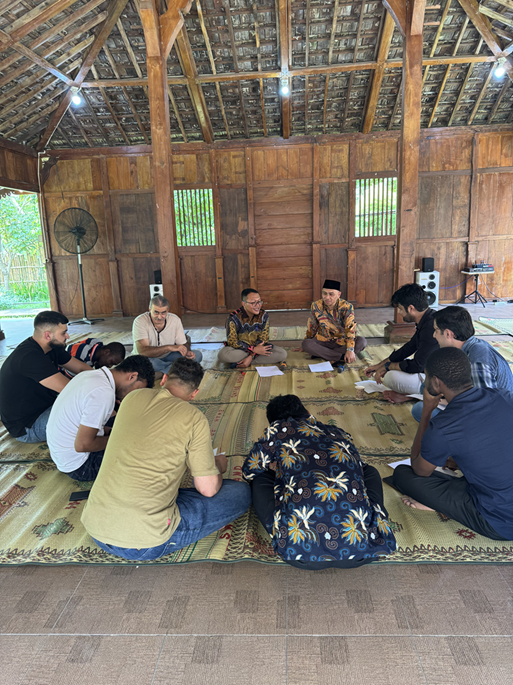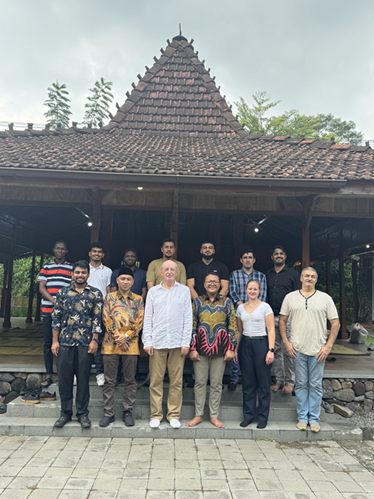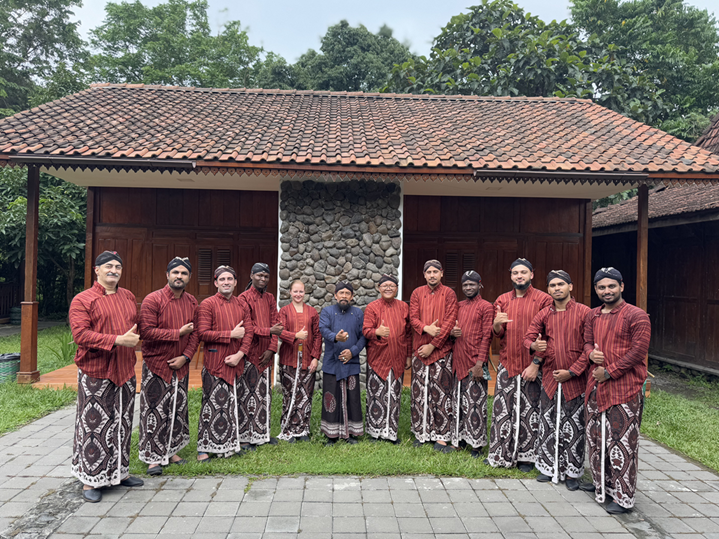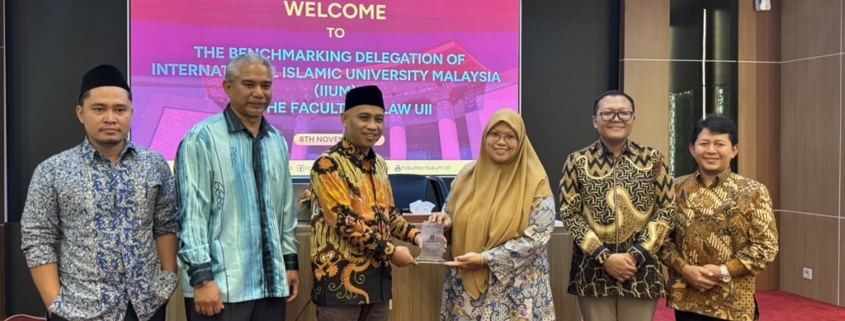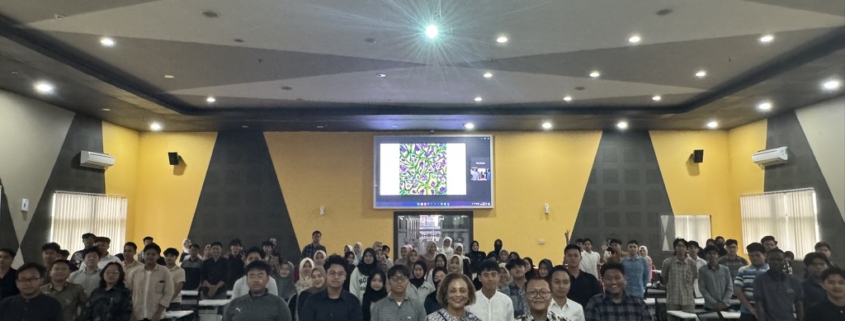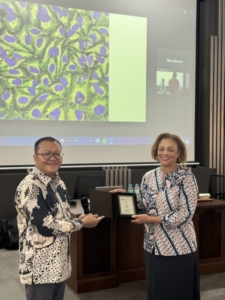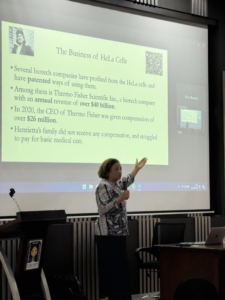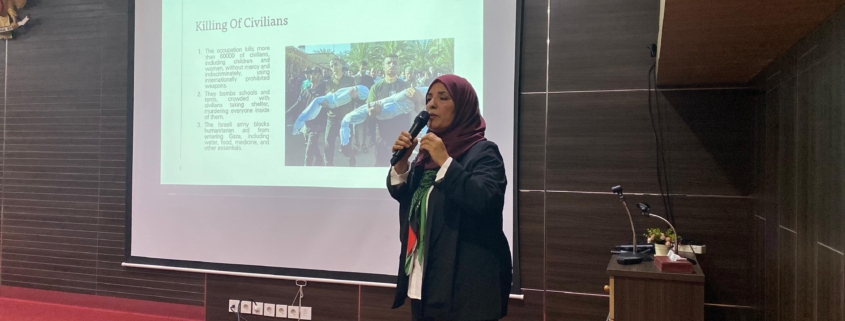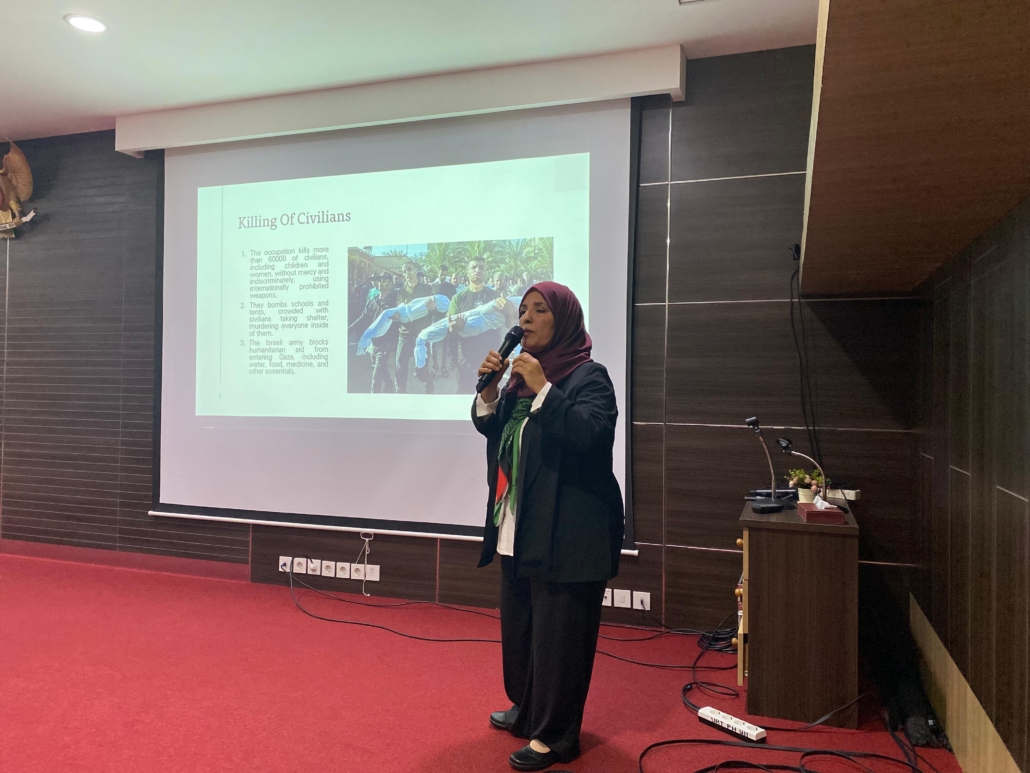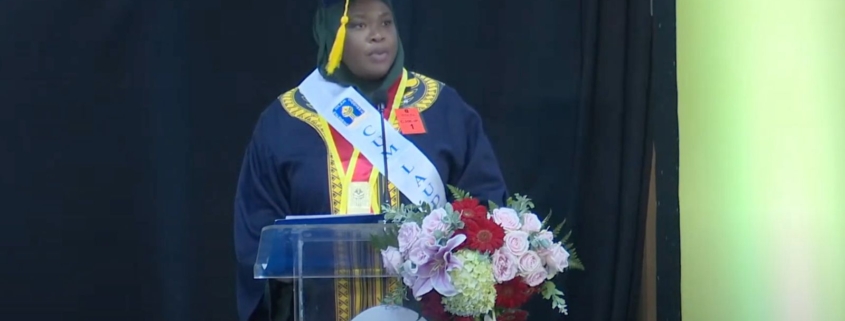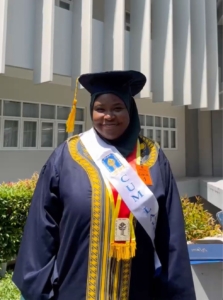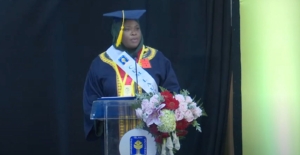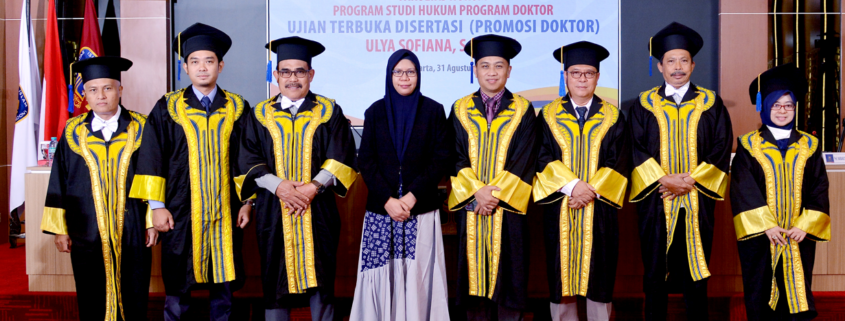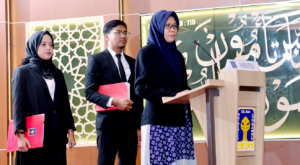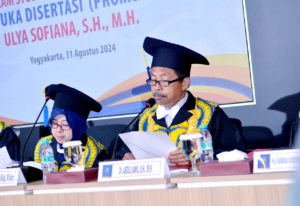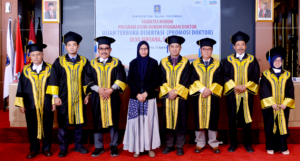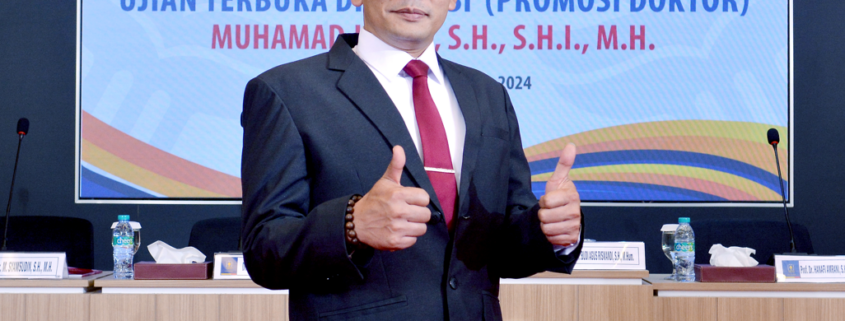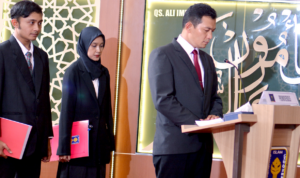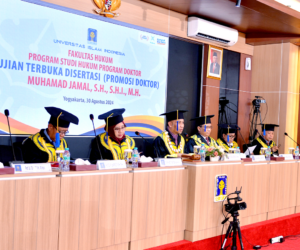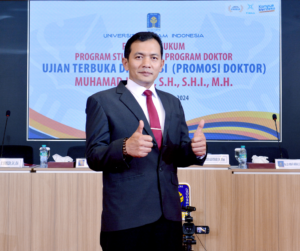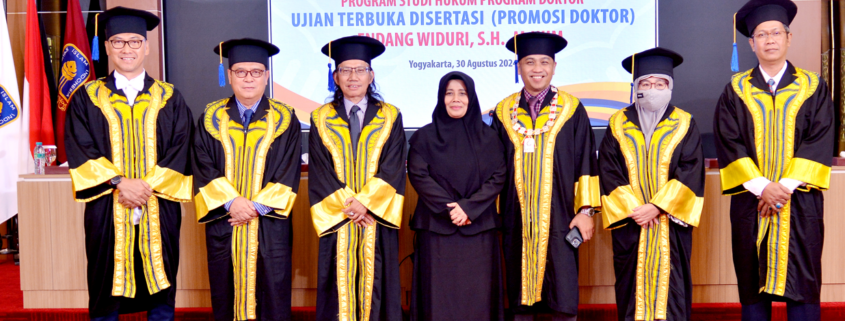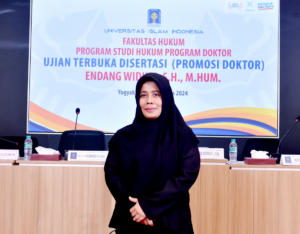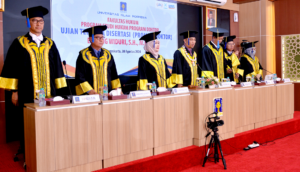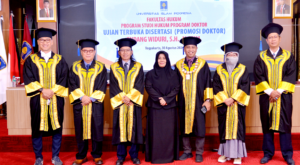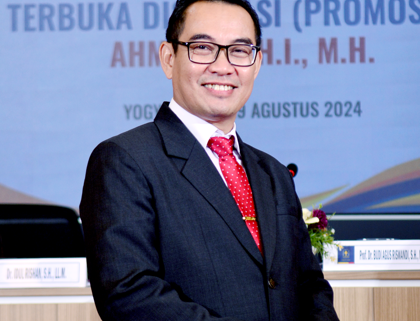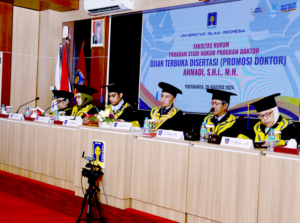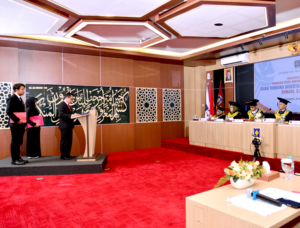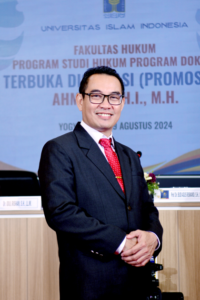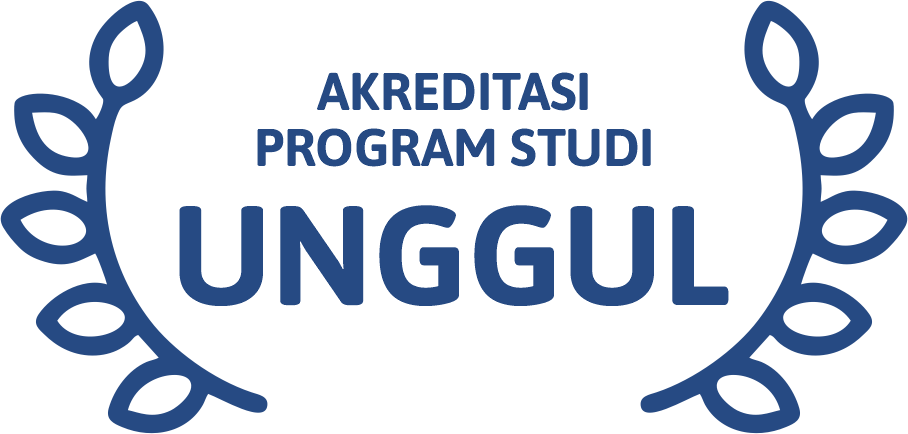On Friday, November 8th, 2024, the Undergraduate Study Program in Law, Indonesian Islamic University (UII) received a Benchmarking visit from the Center of Foundation Law, International Islamic University Malaysia (IIUM) Malaysia, this time the delegation from AIKOL IIUM increased to 12 people. The delegation group arrived at the court at 09.00 Indonesian Western Time (ITW) and continued welcoming the delegation and presenting in the Mini Auditorium Room on the 4th floor of the UII Faculty of Law. The event then continued with benchmarking led by the Head of the Undergraduate Law Study Program, Dodik Setiawan Nur Heriyanto, S.H., M.H., LL.M., Ph.D, as moderator and also MC. This visit was also welcomed and attended by the Dean of the Faculty of Law, Prof. Ph.D., Head of General Administration and Household Division, Sri Achyuniwati, S.T., Head of Academic Division, Muhammad Arief Satejo Kinady, A.Md., Head of Data and Value Affairs, Ubaidurrahman, S.T., Head of Assessment Affairs, Mirani Desi Ekowati, S.E., and head of Lecture Affairs, Helawan Perwiranto, S.Si, as well as several staff from the International Program of the UII Faculty of Law.
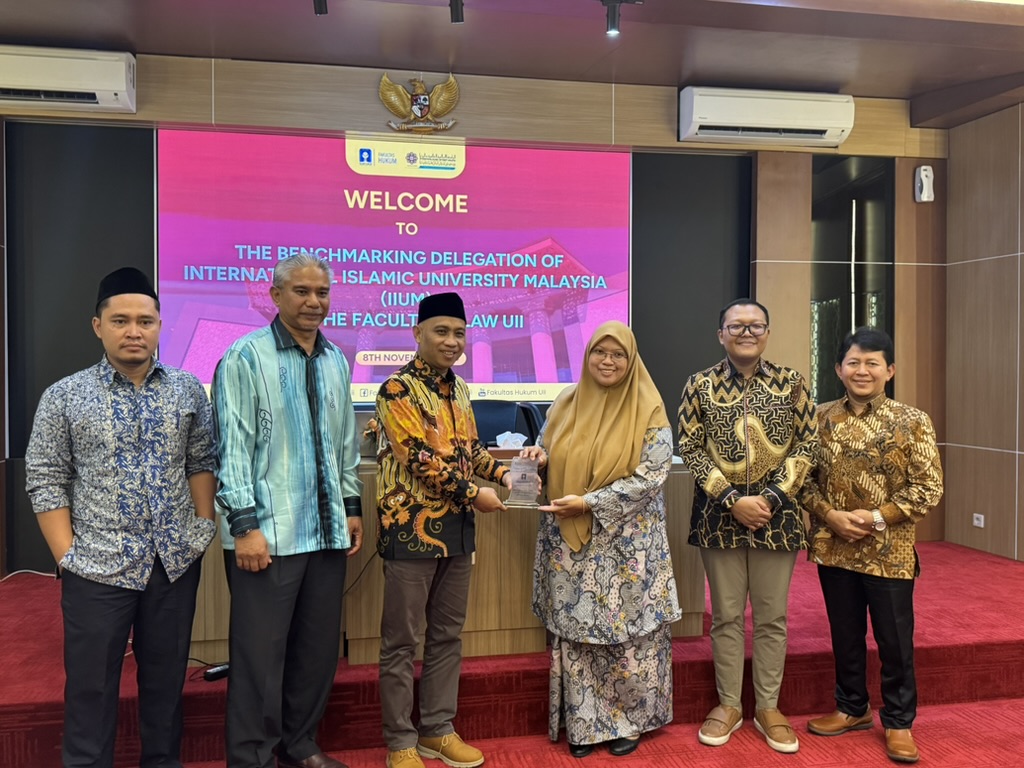
“Thank you Jazakumullah Khairan Katsiran to the Faculty of Law for accepting our Benchmarking visit, so that we can gather together and give each other messages and impressions. This is my second visit about 3 years ago, not only to Jogja, but also to Jakarta, Bandung, and one of the institutions we visited was UII. I believe that Malaysia and Indonesia are like brothers “When you are close you pinch each other, when you are far you yearn for each other”. This is conveyed to the Faculty of Law which has received and accommodated our request for a visit, especially to Mr. Bagya and Prof. Budi, so that later we can discuss and make presentations related to AIKOL IIUM.” Greetings from Dr. Murshid Kassim, a representative of the delegation from the Legal Studies Department of AIKOL IIUM Malaysia.
“Thank you all. We are very happy today to have guests from IIUM, and I would like to welcome you to the UII Faculty of Law. I hope all of you can enjoy your visit here. The hope is that we can establish collaboration between the Faculty of Law and IIUM, especially AIKOL. I think uni is also the right moment because some time ago we went to IIUM to visit the UII Faculty of Law benchmarking. And this time, IIUM visited our campus, this was very good and interesting because I believe we can see various institutional developments, especially the Faculty of Law, so that after this we can share through presentations and discussions. Thank you to Dr. Kassim and the delegation for their visit to the UII Faculty of Law.” Welcome, speech from Prof. Dr. Budi Agus Riswandi, S.H., M.Hum., as Dean of the UII Faculty of Law.
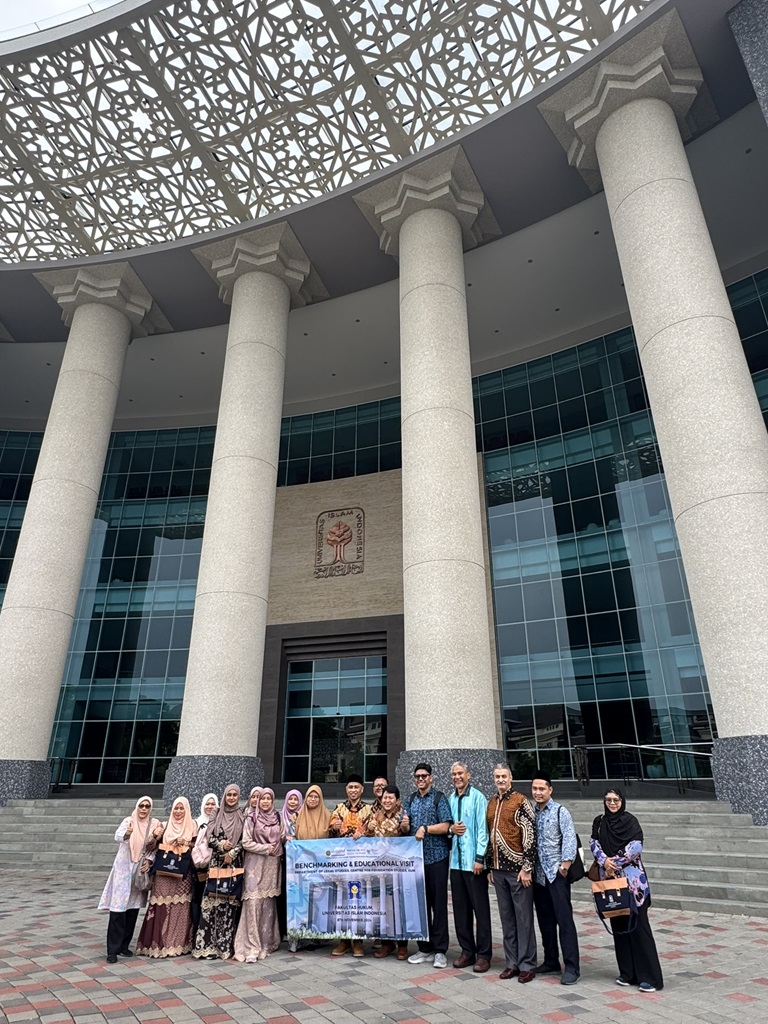
The event ended with a presentation by Dodik Setiawan Nur Heriyanto, S.H., M.H., LL.M., Ph.D., as Head of the Undergraduate Study Program in Law, regarding the academic system. On this occasion, he conveyed some of the requested information in detail. “The assessment process at Undergraduate Study Program in Law follows a CPL (Capaian Pembelajaran Lulusan)-based assessment (graded learning achievement). This assessment model follows an outcome-based education-based curriculum, so it is hoped that for each course the assessment pattern will be different depending on the determined learning achievements of graduates. For example, for courses where the CPL is related to attitudes, there will be an assessment using observation, while for courses where there is some knowledge there will be an assessment using a written exam. “This assessment model is very helpful for lecturers, including measuring whether students can follow lectures well and by the CPL that has been determined.”
The event continued with giving awards in the form of merchandise and group photos, after which the session continued with a presentation by IIUM, represented by Dr. Kassim, as for the Faculty of Law, represented by Dodik Setiawan Nur Heriyanto, S.H., M.H., LL.M., Ph.D., The event closed with questions and answers and discussions in each session. Before the delegation said goodbye and continued its journey, guided by Dodik Setiawan Nur Heriyanto, S.H., M.H., LL.M., Ph.D., and Bagya Agung Prabowo, S.H., M.Hum, Ph.D., the delegation took the time to visit UII museum located in the UII central library.
